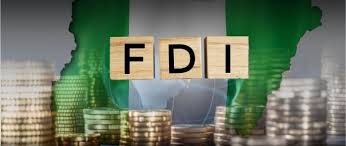Foreign Direct Investment (FDI in Nigeria Q1 2025) fell by 19% to $250 million, down from $310 million in the previous quarter, according to the latest Balance of Payments report by the Central Bank of Nigeria (CBN). While modest compared to past highs, the inflow marks a partial recovery from a net divestment of $310 million in the same quarter of 2024.
The decline comes amid broader capital flight, reflecting global investor caution in response to Nigeria’s persistent exchange rate volatility, inflationary pressures, and policy uncertainties. Portfolio investments recorded a dramatic reversal—from a $5.61 billion inflow in Q4 2024 to a net outflow of $5.03 billion in Q1 2025, representing a $10.6 billion swing.
Other investment liabilities, such as foreign loans and deposits, also plunged from $13.89 billion to $4.32 billion. At the same time, direct investment abroad by Nigerians climbed to $550 million, as domestic investors increasingly seek offshore diversification.
Nigeria’s financial account balance slipped to $7.58 billion, down from $7.82 billion in the previous quarter, underscoring the pressure on the country’s external position. Despite these setbacks, the current account maintained a surplus of $3.73 billion, marginally lower than Q4 2024’s $3.80 billion, supported by a strong trade performance.
Export earnings rose 9.79% to $13.91 billion, led by a 26.7% rebound in gas exports and a 30.4% increase in non-oil and electricity exports. Crude oil exports held steady at $8.59 billion. Imports declined slightly to $9.75 billion, driven by lower inflows of petroleum and non-oil goods, contributing to a wider trade surplus of $4.16 billion.
However, the services account deficit widened to $3.69 billion, mainly due to higher travel and business service expenses. Financial service inflows also dipped. Meanwhile, the secondary income account fell 17.9% to $5.29 billion, as remittances dropped from $5.08 billion to $4.93 billion and foreign aid inflows declined by over 67%, likely influenced by Western geopolitical shifts and executive orders.
Overall, Nigeria’s balance of payments swung into a deficit of $2.77 billion, compared to a $1.10 billion surplus in Q4 2024. This deterioration contributed to a decline in external reserves, which fell to $37.82 billion by end-March 2025 from $40.19 billion in December 2024. Unrecorded capital flows (net errors and omissions) were estimated at $3.85 billion.
The data reflect an uneasy investment climate, where structural reforms and macroeconomic stability will be key to reversing capital flight and restoring foreign investor confidence.















